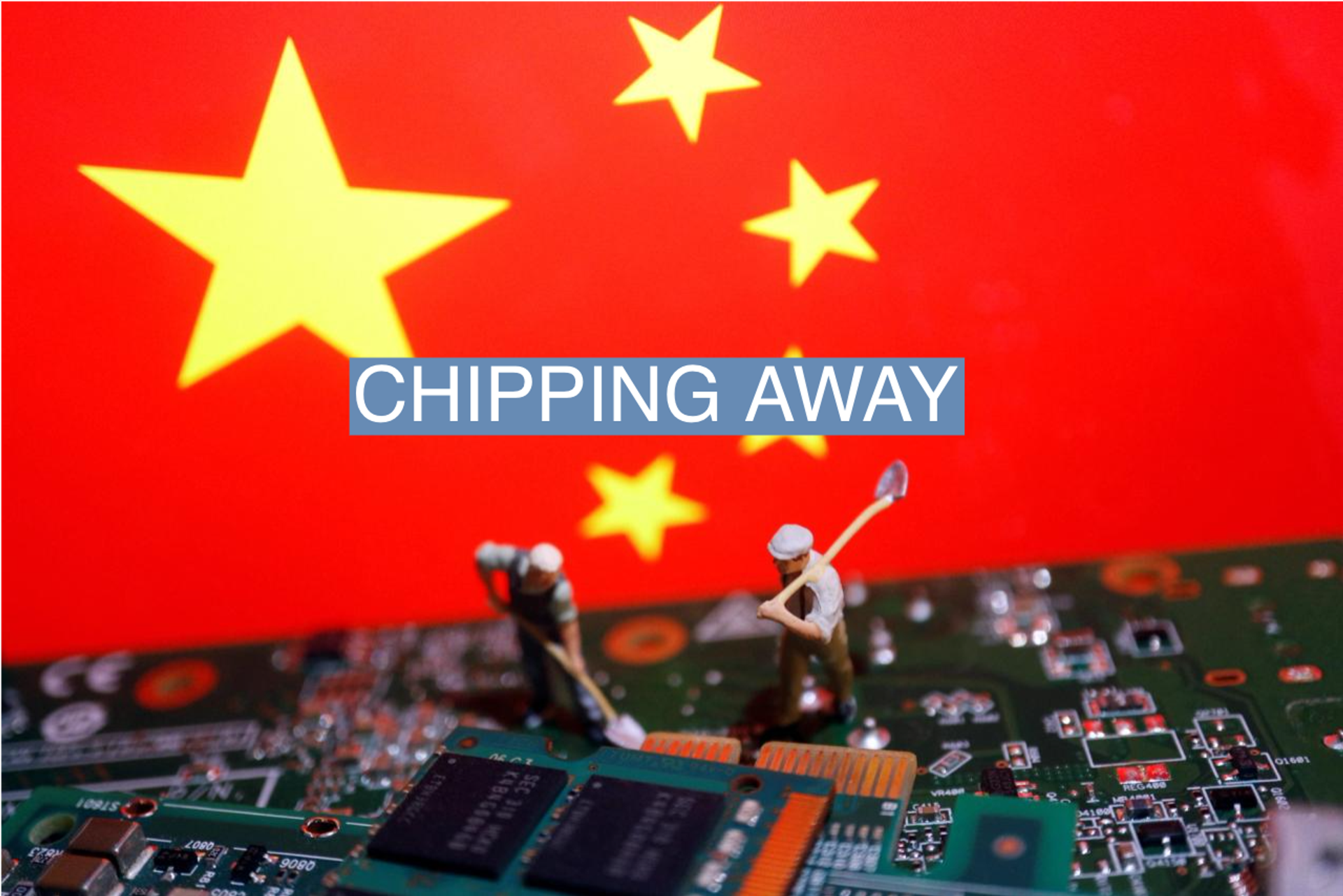The News
Chinese chipmaking firms are booming following state media reports of a semiconductor breakthrough.
Shanghai Micro Electronics Equipment Group, a tech company blacklisted by the U.S., is on track to develop a lithography machine capable of producing 28nm chips by the end of the year, according to Beijing-based newspaper Securities Daily.
We’ve gathered reporting and insight into how consequential this potential development could be in the tech war between China and the U.S.
Insights
- China’s rapid push to develop so-called “legacy chips” worries the U.S. and its allies. While the chip technology is not new, it still plays a role in powering a wide array of products ranging from electric cars to missiles. China producing these semiconductors would likely help Beijing dominate the market and stymie competition because of the country’s ability to keep costs low. — Bloomberg News
- The U.S. created this problem for itself by attempting to restrict Chinese chip development, argues Brian Tycangco, a China-focused analyst at Stansberry Research. “US lawmakers effectively shut out the Western market from these low-cost chips while trying to shut China out from high-end chips,” he writes.
- With little details about the reported breakthrough, the two critical questions now are: How this new machine compares to already-existing technology and how fast they can be made to accelerate chip development, writes Martijn Rasser of Datenna, a firm analyzing Chinese investment.
- The U.S.-induced chip war will not severely inhibit Chinese development, but artificial intelligence is now the new variable in the tech war, writes “Boss Dai,” an influential Chinese tech blogger. If China wants to outpace the U.S., Dai writes, Beijing must not adopt its historic closed-door strategy to innovation. The U.S. is likely to also target Chinese AI development, but AI’s relatively short supply chain means Beijing can still overcome these hurdles, according to the blogger. The key now, Dai says, is pushing for venture capital funding to have innovation funds comparable to those at companies like Microsoft or OpenAI.
AD
